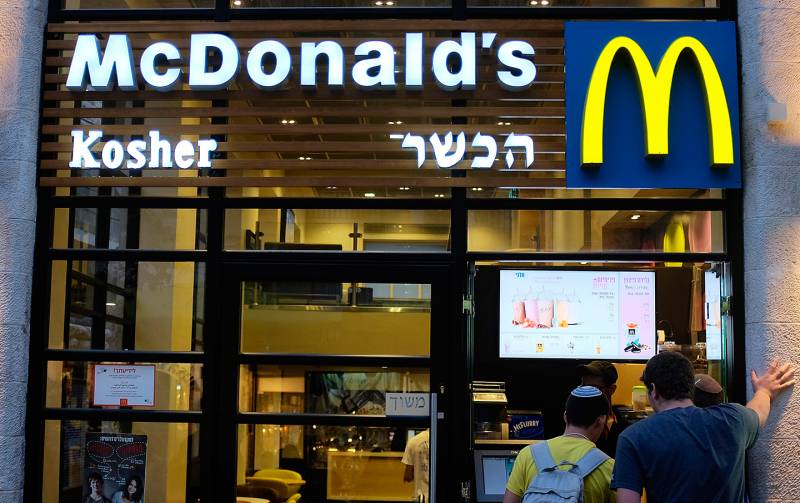
American fast-food chain McDonald’s has been the subject of a boycott since its Israeli franchisee Alonyal announced that it would provide free meals to the IDF after the start of Israel’s offensive in Gaza. As a consequence of boycott pressures, the Chicago based corporation has now decided to buy back all of the 225 restaurants operated by Alonyal in Israel.
The company has admitted to a “meaningful business impact” in Muslim countries owing to the boycotts over Israel’s war in Gaza. “The most pronounced impact that we’re seeing is in the Middle East and in Muslim countries like Indonesia and Malaysia,” McDonald’s CEO Chris Kempczinski stated in an earnings call. Boycott calls have also hurt the bottom line of other American brands such as Starbucks and Coca Cola.
McDonald’s business model is based on a franchise model, where outlets are owned and operated by local affiliate companies.
In a statement announcing the purchase of the Alonyal franchise, McDonald’s Jo Sempels, president of international developmental licensed markets, claimed that it “remains committed to the Israeli market and to ensuring a positive employee and customer experience in the market going forward.”
McDonald’s also announced that it was going to be retaining all of Alonyal’s 5000 strong workforce. “An agreement to sell Alonyal to McDonald’s Corporation has been signed,” a McDonald’s statement stated. “Upon completion of the transaction, McDonald’s Corporation will own Alonyal Limited’s restaurants and operations, and employees will be retained on equivalent terms.”
The McDonald’s corporation has also distanced itself from Alonyal’s decision to donate free meals to the Israeli military, and claims that the decision was made independently by the management of the local franchisee. The company released a statement claiming that “we are dismayed by the disinformation and inaccurate reports regarding our position in response to the conflict in the Middle East… “McDonald’s Corporation is not funding or supporting any governments involved in this conflict.”
The terms of the deal to acquire the Alonyal outlets are yet undisclosed.
Observers have remarked that in the wake of Israel’s war in Gaza, global brands like McDonald’s will start to pay closer attention to political controversies, seeking to avoid divisive issues in the interest of preserving business.
McDonald’s has occupied an interesting role in geopolitics discourse. The hubris around the benefits of globalization in the 1990s led Thomas Friedman, in The Lexus and the Olive Tree to suggest that two countries would never go to war with each if they both had McDonald’s restaurants in their borders. The “Golden Arches Theory of Conflict Prevention” as it has popularly become known, has been conclusively laid to rest this decade, with multiple conflicts breaking out as the world wrestles with more frequent geopolitical upheaval.
